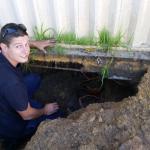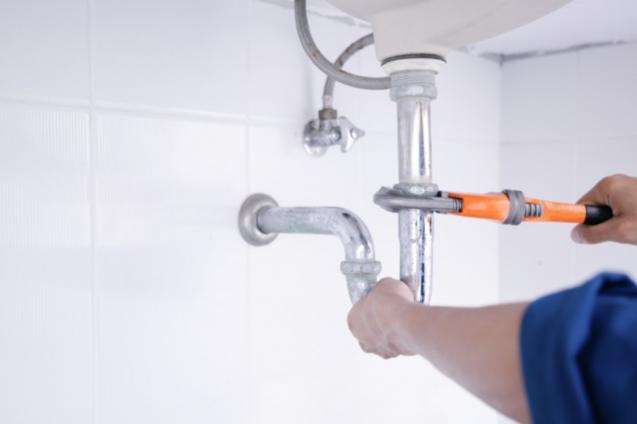
Continuous Hot Water or Solar Hot Water? The pros & cons
Solar hot water is an effective way to lower the energy drain that gives us the privilege of a hot stream of H2O from when we turn the tap. The energy to heat the water comes from the heat of the sun. Here in Oz, there’s an abundance of this - and it’s free!
However, before you make the switch to this green energy source, it’s important to understand a little more about the technology. This will allow you to make an informed decision about going solar or whether to continue with a more traditional water heating method, such as electric or gas.
Solar Hot Water Explained
The biggest challenge to effective hot water from solar is the difference in needs from summer to winter. Requirements can be as much as six or seven times more in the winter. However, the amount of energy available during this time of increased need is lower, as the daylight hours are shorter and the sun less intense. This leads to a mis-match of consumption vs, energy needs.
Because of this, most solar hot water systems work in conjunction with a more traditional system to ensure you have the hot water you require when you need it. This means a gas or electric booster.
Solar water heating systems require panels to be fixed to your property – most typically on the roof. These absorb heat and pre-heat the water that’s stored in a hot water storage cylinder. This will then either be hot enough to use or will be topped by your gas or electric system to bring it up to a useable temperature. Of course, this does mean that there’s a finite amount of hot water. Once it’s used up there’s the need to wait until the energy trickles through to reheat the water in the tank. This can take a few hours, depending on the size of the tank and the temperature of water you require.
All About Continuous Water Heating
Large families, in particular, might want to ensure they never run out of hot water. A gas or electric-fed continuous hot water system does this very efficiently, using technology to ensure the least amount of energy possible is used to heat the water.
The unit is usually installed on an exterior wall yet close the kitchen or bathroom, making for an efficient use of space. A heat exchanger is fired as soon a tap is turned on and you benefit from as much hot water as you require, whenever you need it.
The Pros and Cons
Each option comes with advantages and disadvantages.
Solar hot water
· Advantage: Solar energy is free and abundant, resulting in a reduction in your energy bills.
· Advantage: Solar water heating reduces your carbon footprint.
· Advantage: They provide efficient use of energy.
· Disadvantage: There are significant upfront costs to install such a system. However, the government provides a variety of incentives & funding to install such products.
· Disadvantage: Performance is dependent on climate, so the back-up heating source will be used more in the winter months.
· Disadvantage: Heating is only provided during daylight hours. Water is stored in an insulate storage tank so that it remains hot for use during darkness.
Continuous water heating
· Advantage: You never run out of hot water.
· Advantage: No need for a water cylinder/tank, so saving space.
· Advantage: Temperature is easily adjustable.
· Disadvantage: Use fossil fuels - both electricity and gas produce greenhouse emissions.
· Disadvantage: Limited water flow rates.
· Disadvantage: More expensive to run than solar.
The choice of hot water heating will depend on many factors, including your property location, size and household needs. Solar water systems are undeniably expensive to install but come with related savings on annual bills and the positive ecological impact.
Author Bio
Graham de Villiers started his own company, A2Z Plumbing, Gas and Hot Water in 2016.
He has a long history in the plumbing industry - plus a long list of additional qualifications and accreditations which put him at a considerable advantage over most other plumbing contractors.
As well as being an accredited gas fitter with extensive experience in compliance, Graham also has an unrestricted licence for Water, Sanitary and Drainage work which allows him to take on a much broader range of specialist jobs. His varied experience and specialist knowledge and skills put him in a different league in terms of the scale and scope of the work he’s able to do and have earned him a strong reputation as one of the leading plumbers in Perth.



